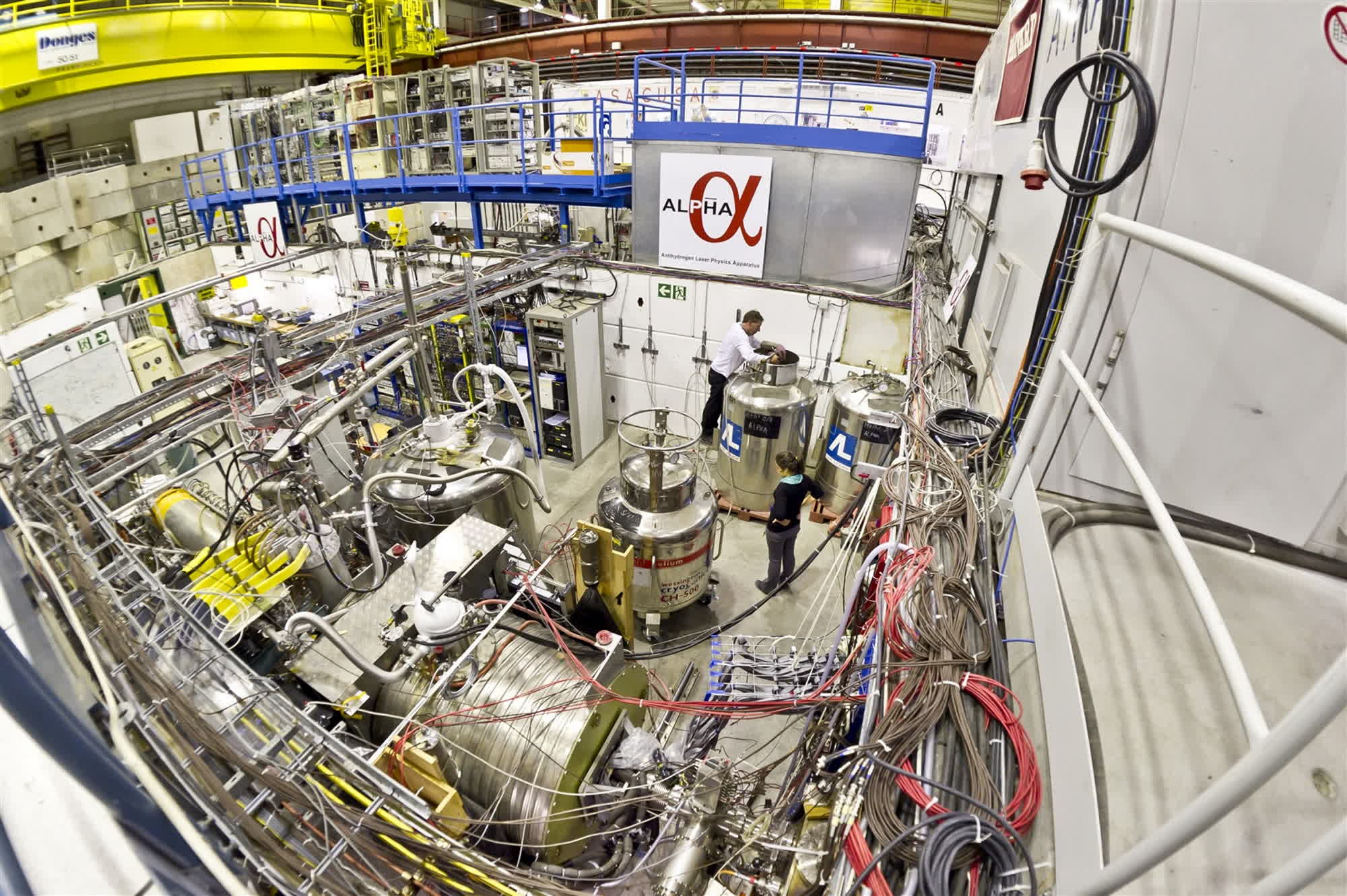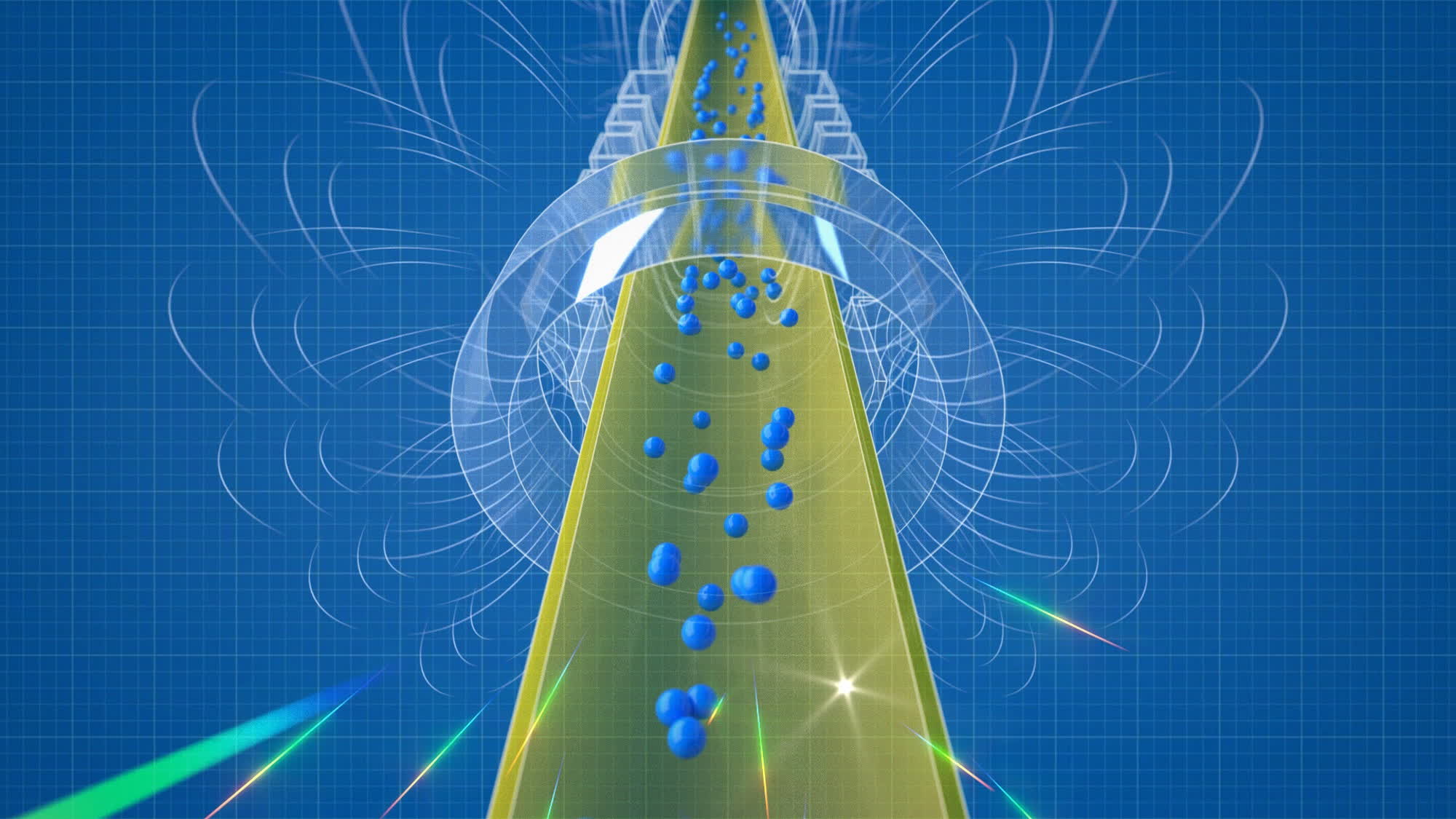In context: Antimatter is a substance composed of antiparticles with an opposite electric charge compared to the corresponding particles in "ordinary" matter. Despite its opposite nature, antimatter and matter should behave the same when interacting with other fundamental forces of nature, like gravity. However, scientists have struggled to prove it.

A recently unveiled experiment at CERN confirms that Einstein was right; antimatter reacts to natural forces the same way as matter. It's a logical hypothesis, but scientists have struggled to prove it for decades – until now.
Researchers employed the Antihydrogen Laser Physics Apparatus (ALPHA) experiment to trap, contain, and let antihydrogen atoms escape, watching if they were falling down or up. Most anti-atoms fell in the end, thus proving that gravity affects antimatter the same as matter.
The physicists in the ALPHA lab made antihydrogen atoms at CERN, the only place in the world where these "simpler" antimatter atoms can be reliably produced and contained. The experiment involved firing an accelerator to make antiprotons from high-speed proton collisions. It then used a "decelerator" called ELENA to slow them down. The antiprotons were later coupled with positrons, which are positively charged antielectrons, to create antihydrogen atoms.

The antimatter atoms were then "pushed" to a 3-meter-tall vertical shaft surrounded by superconducting electromagnetic coils. The magnets held the antiatoms in place, avoiding contact with ordinary matter, which would have resulted in energy release and matter-antimatter annihilation. Finally, the researchers gradually weakened the magnetic field strength at the top and the bottom of the shaft, detecting the antiatoms with two sensors as they escaped from the two "holes" in their magnetic trap.
The experiment proved that most antiatoms (about 80%) were escaping through the bottom of the trap, an asymmetry the researchers say was due to the "downward force of gravity." Einstein's Theory of General Relativity predicts that matter and antimatter have the same behavior in gravitational interactions. However, the postulation is challenging to test as gravity's influence is much weaker than other natural forces, such as electromagnetism.
The ALPHA collaboration finally corroborates previous indirect measurements of antimatter interactions with gravity. Furthermore, the experiment rules out one possible explanation for the imbalance between matter and antimatter. Laws of physics predict that the two types of matter should exist in the same quantity, but direct observations don't support that theory.
One theory says that gravity could have repelled antimatter during the Big Bang, with antimatter going "up" while ordinary matter went "down." The ALPHA experiment rules out this explanation. Aside from confirming the validity of General Relativity and the Standard Model of particle physics once again, the CERN test could help scientists further understand the gravitational nature of antimatter.
https://www.techspot.com/news/100320-gravity-affects-antimatter-cern-experiment-confirms.html